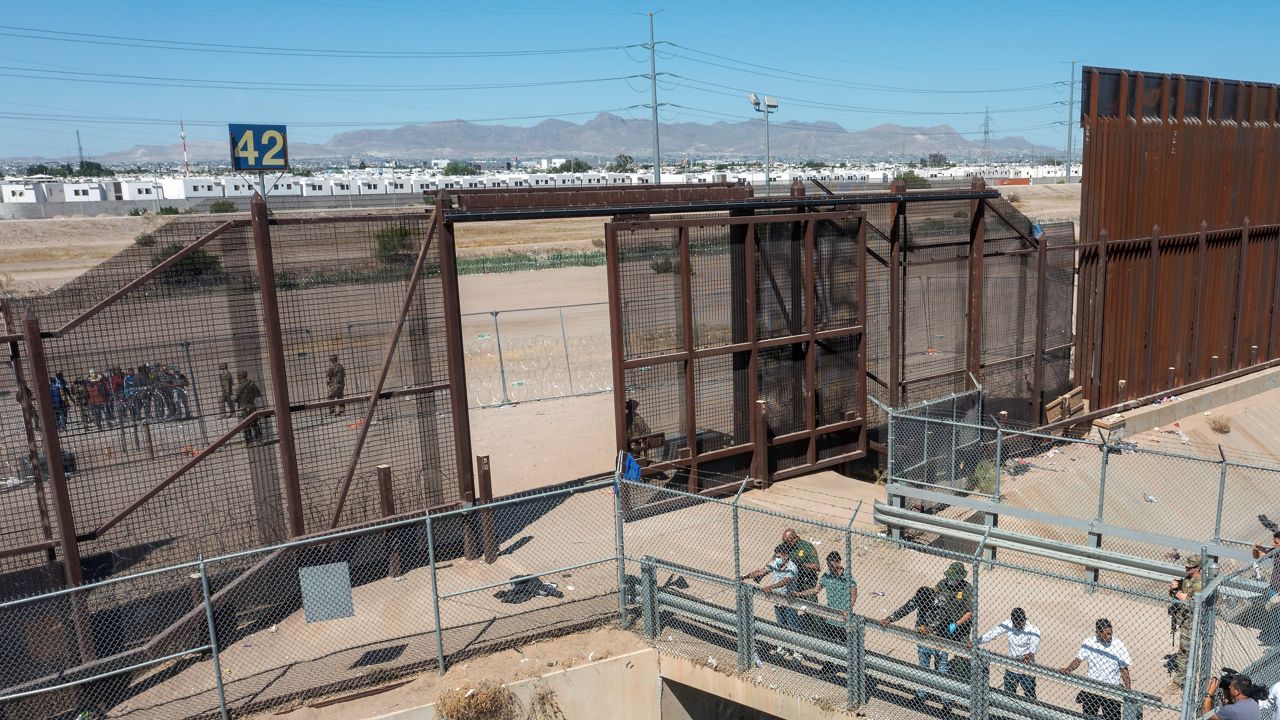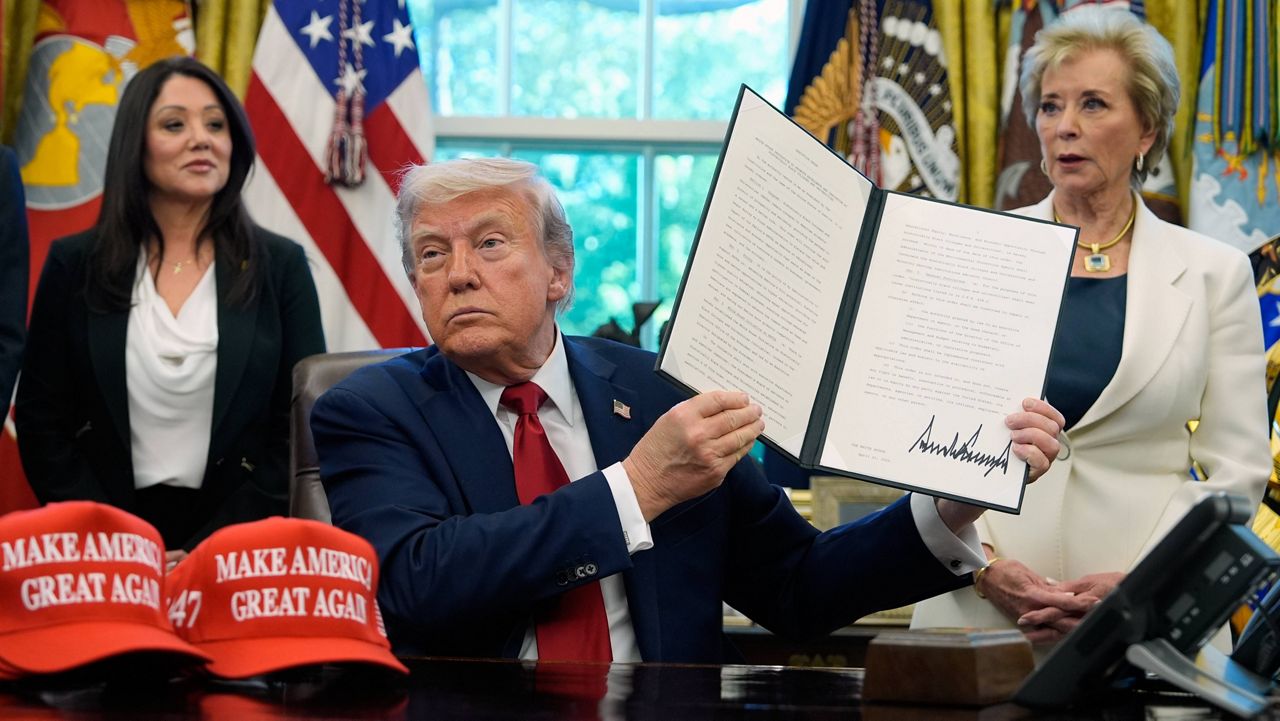The Senate once again failed to pass a bipartisan border security agreement championed by President Joe Biden and congressional Democrats.
A procedural vote on the bill failed Thursday when 50 lawmakers in both parties voted against the bill; the measure required 60 votes to advance. Several senators on both sides of the aisle who initially supported the bill earlier this year flipped their votes to oppose it this time around.
Negotiated by a bipartisan trio of U.S. Senators and introduced in February as the nation’s southern border experienced a swell of immigrants, GOP lawmakers immediately expressed opposition to the plan that had initially been proposed as part of a $95 billion foreign aid bill.
The bill would provide funding to hire thousands of new border patrol agents, buy the latest in detection equipment, overhaul asylum laws and give the president new authorities to close the border when migrant encounters with border patrol agents begin overwhelming the system for processing them.
The measure, crafted by Sen. James Lankford, R-Okla.; Sen. Chris Murphy, D-Conn.; and Sen. Krysten Sinema, I-Ariz., was supposed to be included in a $95 billion foreign aid bill that also provided money for Israel, Ukraine and Taiwan. But the immigration portion was ultimately stripped from the larger bill after Republicans — encouraged by former President Donald Trump, who pushed GOP lawmakers to reject it — objected, and the foreign aid passed both chambers of Congress as a standalone bill last month.
Despite their roles as the bill’s architects, Lankford and Sinema opposed the bill, condemning Thursday’s vote as political messaging.
"Today is an opportunity to be able to have a vote that's sitting out there so people can send fundraising e-mails out later tonight and say 'look I tried to do something,’ when no work was actually done to try and get something completed and passed today,” Lankford said on the Senate floor ahead of the vote.
“My Democratic colleagues blamed Republican political theater for blocking action,” Sinema, a Democrat-turned-independent who is retiring at the end of her term, said Thursday. “So did I. They were right … it turns out my Republican colleagues are all talk and no action.”
“Today, though, my Democratic colleagues have chosen more political theater instead of real efforts to solve this crisis. All talk and no action goes both ways,” she continued, before calling Thursday’s effort a “show vote whose sole purpose is to point the finger back at the other party.”
“Yet another cynical political game,” she said, later adding: “We don’t have time for your political games ... this is not a Senate interested in solving those challenges.”
Other notable lawmakers who sank the procedural vote Thursday included Republican Sens. Susan Collins of Maine and Mitt Romney of Utah, who initially supported the bill when it was put up for a vote in February, as well as progressive Sens. Bernie Sanders, I-Vt., Ed Markey, D-Mass., Alex Padilla, D-Calif., and Laphonza Butler, D-Calif.
Democrats running for reelection in tough races in November -- Ohio Sen. Sherrod Brown, Pennsylvania Sen. Bob Casey, Montana Sen. Jon Tester, Nevada Sen. Jacky Rosen and Wisconsin Sen. Tammy Baldwin -- voted in favor of the bill.
Even if the Senate had passed the bill, House Speaker Mike Johnson, R-La., said earlier this week it would be “dead on arrival” in the GOP-controlled House of Representatives.
In a statement after the vote, President Biden charged that "Congressional Republicans do not care about securing the border or fixing America’s broken immigration system."
"If they did, they would have voted for the toughest border enforcement in history. Instead, today, they put partisan politics ahead of our country’s national security," Biden said, putting the blame squarely on his opposition party for blocking funding for more Border Patrol Agents and fentanyl detection technology and the authority to allow him to close the border when overwhelmed.
"I want to be absolutely clear: while Congressional Republicans are choosing to stand in the way of border enforcement, I will not stop fighting to deliver the resources that border and immigration personnel need," the president added. "If you believe, as I do, that we need reform now, doing nothing is not an option. We must make our border more secure and we must make sure the United States remains a beacon of hope and opportunity."
The Biden administration pushed hard for the bill's passage, with the president speaking directly with Senate GOP Leader Mitch McConnell and Speaker Johnson about the measure, and Democrats sought to put their Republican colleagues on the spot with Thursday's vote.
An official noted on a call this week that the White House has been working with officials in Mexico and other countries to strengthen border enforcement.
The official said encounters between ports of entry at the Southwest border are down almost 50% from December, when almost 250,000 migrants tried to cross into the U.S. from Mexico — the highest monthly total ever recorded, according to U.S. Customs and Border Protection.
“We’re in a moment right now in terms of global migration where there are more people displaced all over the world than at any point since World War II, and that includes in our hemisphere,” a senior administration official said.
Noting that border encounters are down from their December peak and lower than they typically are this time of year, “all of the factors that have been driving this unprecedented movement of people all over the world remain," the official added.
An official said the Department of Homeland Security and the White house have been taking steps to exercise their legal authorities and coordinate with federal and international partners to reduce unlawful migration, including partnering with the Department of Justice to more quickly remove migrants who do not establish a legal basis to remain in the United States. The DOJ rule requires immigration courts to make a final decision on such cases in an immigration court within 180 days.
“We recognize there are limits to what any administration can do in this space with executive action,” the administration official said. “We have seen these surges of migration now occur regularly under the last three administrations of presidents of both parties, and you’ve seen presidents of both parties using their executive authorities to address it. What we really need here and what we continue to call for is for Congress to do its job.”
Spectrum News' Susan Carpenter and Ryan Chatelain contributed to this report.





_crop)


